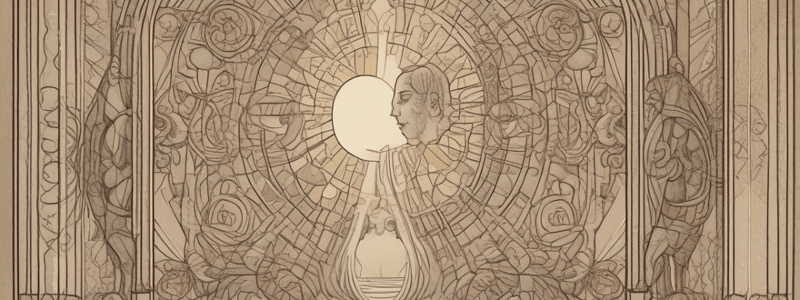Podcast
Questions and Answers
What is the primary characteristic of learning, according to the given definition?
What is the primary characteristic of learning, according to the given definition?
- A change in the learner's motivation
- A change in the learner's environment
- A relatively permanent change in the state of the learner (correct)
- A temporary change in the learner's behavior
Who is credited with the discovery of classical conditioning in 1906?
Who is credited with the discovery of classical conditioning in 1906?
- John Watson
- B.F. Skinner
- Sigmund Freud
- Ivan Pavlov (correct)
In Pavlov's experiment, what was the initial response to the neutral stimulus?
In Pavlov's experiment, what was the initial response to the neutral stimulus?
- Aggression
- Fear
- Salivation
- No response (correct)
What is the primary difference between the Unconditioned Response (UR) and the Conditioned Response (CR)?
What is the primary difference between the Unconditioned Response (UR) and the Conditioned Response (CR)?
What type of learning is characterized by a relatively permanent change in behavior?
What type of learning is characterized by a relatively permanent change in behavior?
In classical conditioning, what is the role of the neutral stimulus?
In classical conditioning, what is the role of the neutral stimulus?
What is the primary difference between classical conditioning and operant conditioning?
What is the primary difference between classical conditioning and operant conditioning?
What is the primary goal of classical conditioning?
What is the primary goal of classical conditioning?
What is the primary characteristic of the unconditioned response?
What is the primary characteristic of the unconditioned response?
What is the primary function of the unconditioned stimulus in classical conditioning?
What is the primary function of the unconditioned stimulus in classical conditioning?
In classical conditioning, what is the ultimate goal of associating the conditioned stimulus with the unconditioned stimulus?
In classical conditioning, what is the ultimate goal of associating the conditioned stimulus with the unconditioned stimulus?
What is the primary difference between the conditioned response and the unconditioned response?
What is the primary difference between the conditioned response and the unconditioned response?
What is the role of the conditioned stimulus in classical conditioning?
What is the role of the conditioned stimulus in classical conditioning?
What is the primary characteristic of operant conditioning?
What is the primary characteristic of operant conditioning?
What is the primary goal of Ivan Pavlov's experiment?
What is the primary goal of Ivan Pavlov's experiment?
What is the primary difference between classical and operant conditioning?
What is the primary difference between classical and operant conditioning?
What is the primary characteristic of the unconditioned stimulus?
What is the primary characteristic of the unconditioned stimulus?
What is the primary function of the conditioned stimulus?
What is the primary function of the conditioned stimulus?
What is the primary difference between a conditioned response and an unconditioned response?
What is the primary difference between a conditioned response and an unconditioned response?
What is the primary goal of classical conditioning in psychology?
What is the primary goal of classical conditioning in psychology?
Flashcards are hidden until you start studying




